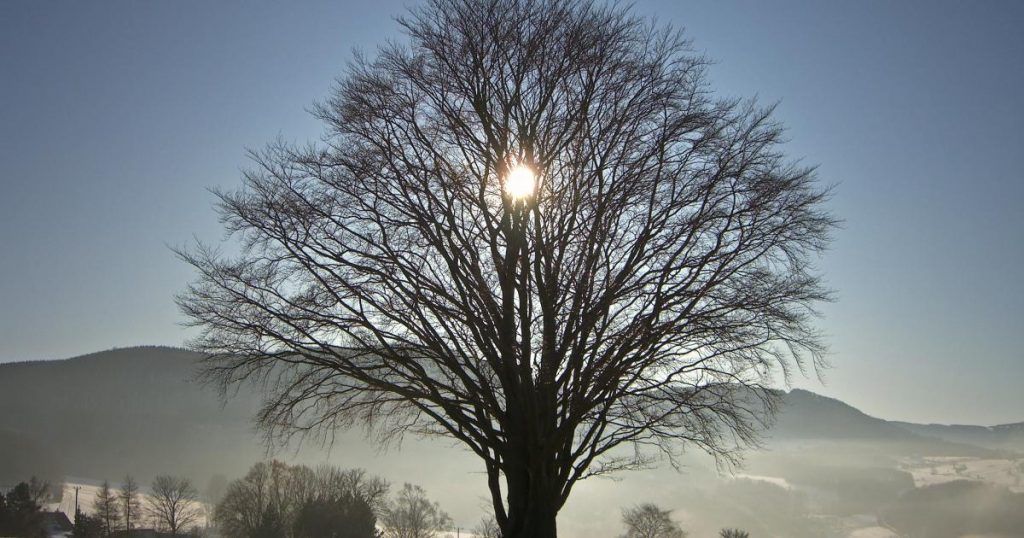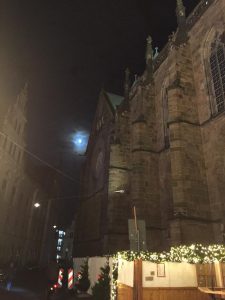By Carl Kruse
Before anyone kept records we have been celebrating Winter Solstice, the shortest day ( longest night) of the year. In prehistoric times people were afraid the sun would not return and performed elaborate rituals to encourage it back. In Roman times Saturnalia took place around December 25th, the date of the solstice in the Julian calendar, later adopted by the early Christian church as the alleged (but probably unlikely) date of the birth of Christ, leading to the celebration of Christmas. And because other celebrations such as Hannukah and Kwanza arguably arose from the large-scale popularity of Christmas, we can thank the ongoing influence of the midwinter equinox for the host of celebrations taking place as the year comes to an end.

The word solstice comes from the Latin words for sun, “sol,” combined with the word “stitium,” which is to stop. In our modern calendar Winter Solstice takes place this year December 22, which is today. Any reason to celebrate is good so let’s continue humanity’s long tradition of merry-making and celebrate. Here we will do so with a chewy-velvety glass of Cabernet Sauvignon and some time thinking on things we are grateful for, like our friendships, our family, and that even though much seems awry in the world, we remain hopeful for a better future. Happy Solstice all from Carl Kruse Dot Org.
P.S. Always good to see other people post about their take on the Winter Solstice and how they celebrate it in their own ways. See here.
The blog’s homepage is at https://carlkruse.org
Contact: carl AT carlkruse DOT com
The blog’s last post was on the greatest aquarium in the world.
Check out How I Fell In love with Winter. https://www.pinterest.com/pin/how-i-fell-in-love-with-winter-carl-kruse–755971487449382831/
Moon over the Bremen cathedral


Happy Winter Solstice Mr. Kruse. Here’s to another year of hurtling through space. Keep doing good stuff.
Here’s to another year hurtling through space Judy! Thanks for stopping by and for the good vibes.
Carl Kruse
I’ve received three private emails suggesting the celebration of the Solstice is some sort of Pagan (in one instance) and New Agey-Hippey (in two other cases) celebration. That promoting the winter solstice makes me look silly.
I’ve got two things to say.
The first is that almost any reason to celebrate with good cheer and without hurting anyone else is fantastic and something the world could use more of. In this regard, I am happy to join the historical — prehistoric really — folks that celebrated the winter equinox.
The second is that without much debate and in all earnest, the celebrations of the solstice dating back eons were the precursor to every major religious holiday — Christmas, Hannukah, Kwanzaa, Saturnalia, Festivus, Coynemas, et al — and so by rights of first the winter solstice comes way before Christmas, to give an example. And no, Jesus Christ was not born on December 25 so stop it. December 25 was the day of the SOLSTICE in the Julian Calendar, which was used by the Roman Empire, and marked the Saturnalia celebrations. The early Christian church piggy-backed and appropriated Saturnalia as the birth of Christ to more easily convince everyone to move the party for Saturnalia to Christ. That’s the truth of the matter.
You want to celebrate Christ. Go right ahead. But the celebrations of the winter solstice, coinciding with the astronomical phenomenon of the winter equinox, precede Christ by many thousands, perhaps tens of thousands of years.
Carl Kruse
Dayum Carl Kruse. Calling it as it is. Happy Solsticing.
Ahahahaha. Scoobysnack? Really. I can just hear it with the right intonation. Thanks for the good vibes and Happy Winter Solstice right back atcha!
Carl Kruse
Here’s another vote saying to call it as it is Kruse. I enjoyed reading the quickie historical review of the solstice and how various celebrations sprung from it. Here’s wishing you a great 2016.
And now that 2016 is here, wanted to wish you and all your peeps a great one Mr. Kruse. Keep shining bright.
Again, thank you all for the fantastic wishes. Returning the love back five-fold.
Carl Kruse